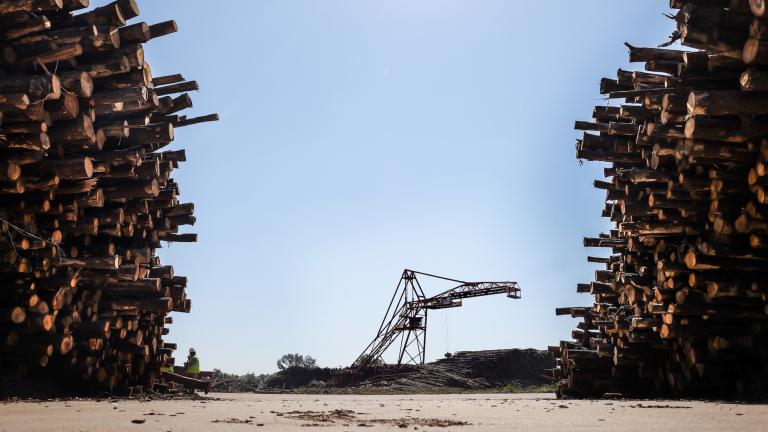In a piece discussing the import of today’s kick-off of the Kyoto Protocol, Chris Mooney makes a point I also tried to make in my review of Crichton’s book, and again in this post.
Those who remain in denial about the seriousness of global climate change must now defend a truly ludicrous position. They must argue that the rest of the world is suffering from a mass delusion, a fantasy so powerful that over a hundred nations have independently fallen for the same alarmist myth; and furthermore that the 35 developed nations facing binding commitments under Kyoto have voluntarily agreed to measures that would severely damage their economies all for nothing. When we hear someone like Senator James Inhofe speak of a climate change “hoax,” it’s pretty clear that he has a conspiracy theory along these lines in mind.
Except for the part about "severely damage their economies," which I think is far from certain, Yes. Crichton tries to portray climate skeptics as a brave band of level heads battling a wave of alarmism. But think about it. What are the chances that virtually the entire scientific establishment, along with hundreds of self-interested politicians, have been duped, and this group of (conservative) people in the U.S. has seen through the facade? I mean, sure, it’s possible. As the skeptics are fond of saying, the scientific consensus has been proven wrong before.
But it’s also true that in many, many, many more cases, the consensus has held and skeptics have been revealed as cranks and/or lunatics. (Indeed, even today, for virtually any scientific consensus — on geology, evolution, astronomy, you name it — there are skeptics out there. Try google if you don’t believe me.) That’s the nature of punctuated equilibrium in science: there are upheavals, but in absolute terms, most of the time the consensus is stable. Paradigm shifts are rare. From a purely statistical point of view, it’s highly unlikely that a consensus like the one on anthropogenic climate change, which has convinced most scientists and policy-makers the world over, is delusional.
It’s boring and square to defend the scientific establishment, but skeptics are not Right and Brave and True just because they’re skeptics. Right and Brave and True skeptics are the exception — that’s why they’re so celebrated.
On a similar note, check out this New Scientist piece, which straightforwardly asks whether climate change is happening. After reviewing the evidence, skeptical and otherwise, author Fred Pearce concludes:
For the true hard-liners, of course, the scientific consensus must, by definition, be wrong. As far as they are concerned the thousands of scientists behind the IPCC models have either been seduced by their own doom-laden narrative or are engaged in a gigantic conspiracy. They say we are faced with what the philosopher of science Thomas Kuhn called a "paradigm problem".
"Most scientists spend their lives working to shore up the reigning world view – the dominant paradigm – and those who disagree are always much fewer in number," says climatologist Patrick Michaels of the University of Virginia in Charlottesville, a leading proponent of this view. The drive to conformity is accentuated by peer review, which ensures that only papers in support of the paradigm appear in the literature, Michaels says, and by public funding that gives money to research into the prevailing "paradigm of doom". Rebels who challenge prevailing orthodoxies are often proved right, he adds.
But even if you accept this skeptical view of how science is done, it doesn’t mean the orthodoxy is always wrong. We know for sure that human activity is influencing the global environment, even if we don’t know by how much. We might still get away with it: the skeptics could be right, and the majority of the world’s climate scientists wrong. It would be a lucky break. But how lucky do you feel?
Couldn’t have said it better myself.


